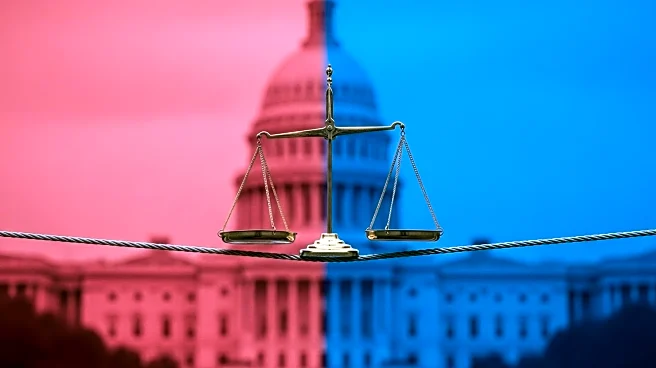What's Happening?
The Senate was unable to pass two competing versions of a short-term funding measure, leading to a potential government shutdown. The failure to resolve a partisan disagreement over extending expiring health insurance subsidies resulted in each party voting on its own version of the stopgap spending bill, neither of which garnered enough support to pass. The Republican-authored bill, which had passed the House, was opposed by Senator Lisa Murkowski, who joined Senator Rand Paul in voting against it. Murkowski cited the need for a short-term fix to prevent the lapse of expanded health insurance tax credits and cuts to the Corporation for Public Broadcasting affecting remote communities in Alaska. The Democratic version aimed to permanently extend the expiring health care tax credits, but also failed to pass.
Why It's Important?
The inability to pass a stopgap funding bill raises the risk of a partial government shutdown, which could have significant implications for federal operations and services. The disagreement over health insurance subsidies is particularly critical, as failure to extend these could lead to increased premiums for millions of Americans. The partisan divide highlights the challenges in reaching a consensus on fiscal policy, with potential impacts on public health and economic stability. The situation underscores the urgency for bipartisan negotiations to prevent disruptions in government services and financial markets.
What's Next?
Senate Majority Leader John Thune plans to reconsider the vote after the Senate returns from recess. The House has canceled its scheduled votes but may call members back if the Senate fails to pass a stopgap bill. The looming deadline of September 30 for current funding adds pressure for a resolution. Without an agreement, the government faces a shutdown, which could lead to further political and economic consequences. Both parties are urged to negotiate to avoid a shutdown, but significant policy differences remain.











